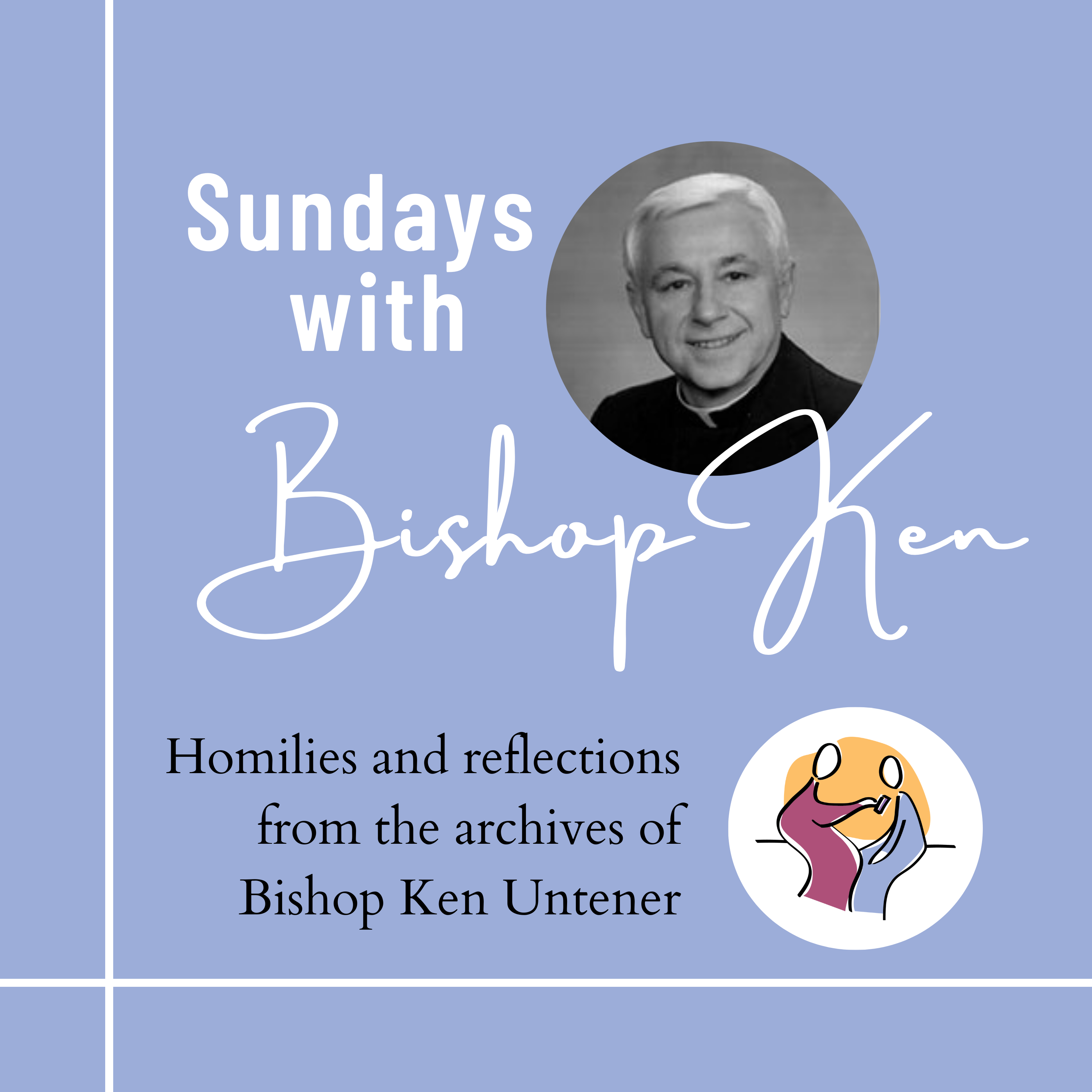Episode Transcript
[00:00:04] Speaker A: Welcome to Sundays with Bishop Ken.
[00:00:11] Speaker B: A.
[00:00:12] Speaker A: Weekly podcast brought to you by the publishers of little books of the Diocese of Saginaw.
This lent, we use our Sundays to learn more about the parts of the mass and their significance to our faith, life and journey.
Please subscribe to the Little Books app for all of the daily black book Reflections for Lent.
Find it on your favorite app platform.
We are pleased to spend this quiet time with you today.
[00:01:15] Speaker B: You let's begin by learning about Mertella Minor, a teacher who started a school to educate african american girls.
Murtella once uttered, if God allows me to live, I will devote my entire life to teaching slaves.
In 1815, Metella was born on this day to a poor farming family near Brookfield, New York.
With the help of loans, she went to school and became a teacher. She taught in New York and then went to Mississippi to pay off her school debt. In Mississippi, Mertella saw slavery firsthand. She asked permission to hold classes for african american girls in the community.
She was refused.
When illness forced her to leave Mississippi and return north, Murtella found that freed slaves were not much better off than the slaves she had seen in Mississippi. Many were banned from public schools with the financial aid from a quaker philanthropist, donations of school supplies from friends, and the encouragement of Reverend Henry Beecher Stowe, whose sister Harriet wrote Uncle Tom's cabin. Mattela opened a school in 1851 for african american girls who wished to become teachers.
Initially, Matella held classes in her home, but when she began receiving threats, benefactors helped her to find a more permanent and safer location.
Within five years, six graduates of the Norman School for colored girls were teaching in schools. Mattela Minor died December 17, 1864.
Now we continue our practice on Sundays of praying the mass.
Today's focus is on the preparation of the gifts.
Recall what took place at the feeding of the multitudes. A large crowd was in need of food, and the disciples told Jesus he should send them off to nearby towns where they could get some.
He responded, you take care of them. They threw up their hands in frustration. We can't. All we have are a few loaves and a couple of fish.
Jesus said, bring me what you've got.
They did.
Then he blessed the little they had, gave it back to them, and it was enough.
On any given day, each of us can say what the disciple said.
We stand before all the needs that surround us, family, friends, job, finances, unfinished tasks, personal struggles, and say, lord, I don't have what it takes.
The Lord says to us, bring me what you've got.
When we do, the Lord blesses what we bring, and it is enough.
The bread and wine brought forward at mass represent our lives.
We also bring forward money.
This is not simply a matter of paying the rent. Money speaks the hard language of real life. It comes from our wallet, our purse, our budget, our job.
When we give the bread and wine and our money to the Lord, we give of ourselves.
St. Augustine suggests we also place ourselves and our intentions on the altar.
It's not hard to pray the preparation of the gifts.
We simply think of our struggle to deal with everything going on in our lives and hear the Lord say, bring me what you've got.
Then we place it all on the altar.
[00:05:43] Speaker A: Thank you for sharing some quiet time with the Lord today.
Please consider supporting this podcast by clicking the donate link.
For more information and other prayer resources, go to littlebooks.org.
May your day be blessed.


